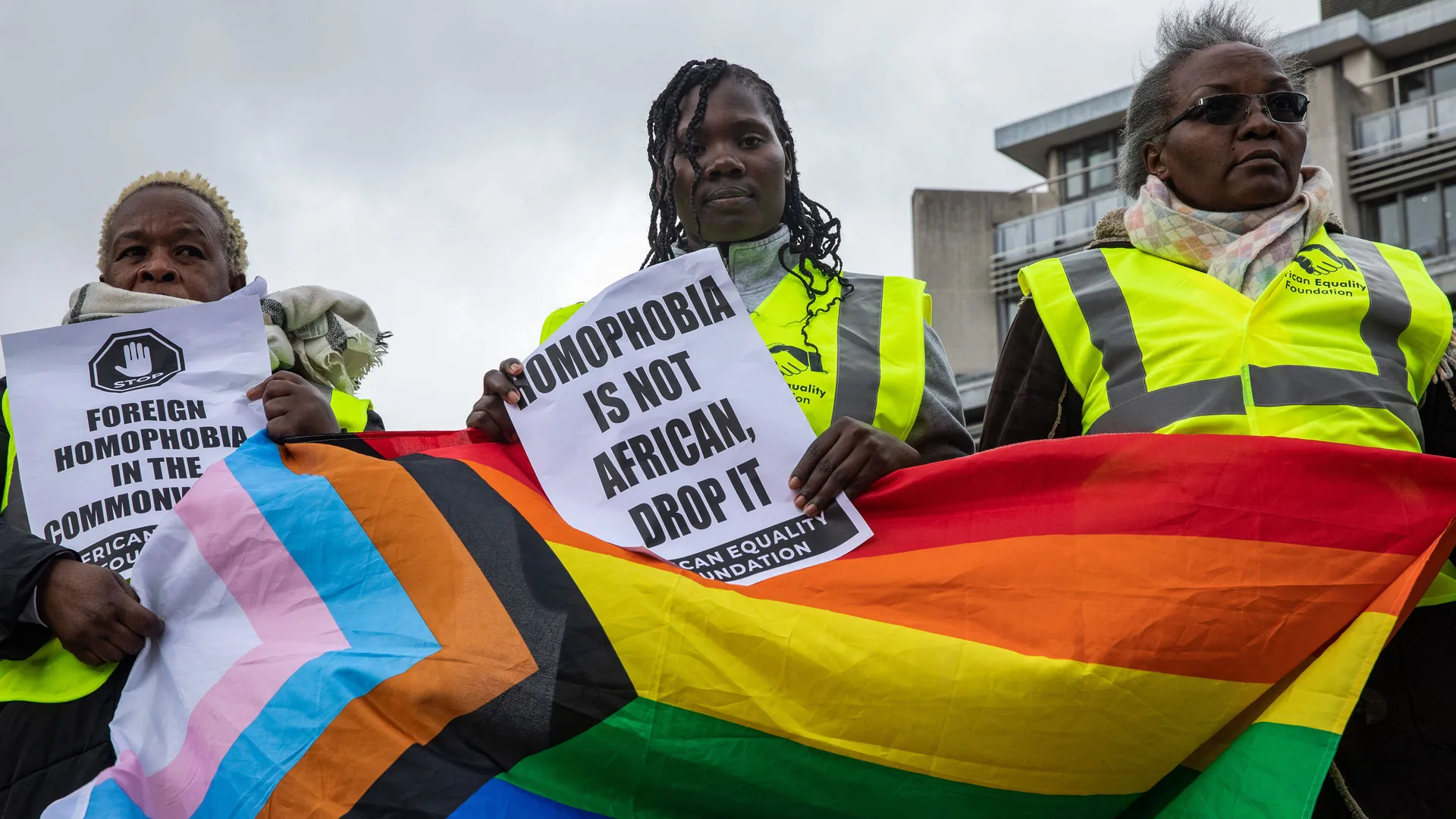Ugandans who identify as LGBTQ+ are terrified as a new law approaches

A harsh anti-LGBTQ law was recently passed by the Ugandan parliament. The Anti-Homosexuality Act, as it is officially known, was created "to protect the traditional family," according to its introduction. Yoweri Museveni, the president of the nation, must sign it before it can become law, despite his prior anti-homosexuality activism.
The Ugandan government has passed a bill that threatens severe punishments for identifying as LGBTQI and acknowledging the existence of lesbian or gay people without condemning them. It also penalizes serving as an LGBTQ person's landlord and requires neighbors, family, friends, and others to report anyone they suspect of being gay to the authorities.
The international outcry has been swift, with notable figures from U.S. Secretary of State Antony Blinken to UNAIDS Executive Director Winnie Byanyima taking to Twitter to condemn it. President Museveni painted the act as an anti-colonial statement, accusing Western countries of imposing their values on Uganda.
The bill intended to boost the president's political capital and draw attention away from corruption and other problems has caused harm to HIV service delivery. Reaction in Uganda has been anti-LGBTQ, with demonstrations against homosexuality and protests against a lawmaker who opposed the bill. Mothers of LGBTQI+ children have written an open letter calling on President Museveni not to sign the bill into law.
This personal defense is similar to testimony presented before United States state legislatures by parents of transgender youths. Ugandan media and politicians have used rhetoric and misinformation that rings familiar in the U.S., leading to a call to arms to fight for basic human rights and dignity.
The Convening for Equality consortium has issued a five-page guideline for international allies to support LGBTQ people seeking asylum elsewhere. A grand coalition is needed to defend human rights, asylum seekers, LGBTQ rights, women’s rights to bodily autonomy, and more.
The consortium document called for public statements and protests around the world, and talks are under way for a similar protest in the United States. Kanyemba in South Africa recommended having the U.S. Congress talk to its counterpart in Uganda to prepare for the bill being returned to parliament there.
Kanyemba argued that right-wing politics, moralizing legislatures, and moralizing judicial systems are putting people's lives at risk. Similar bills are being considered in various African countries in a wave of "Homophobic Spring".
According to CNN, Ghanaian politicians disagree over the details of a similar bill that is currently being discussed in their parliament. The president of the nation, Nana Akufo-Addo, announced some provisions would be relaxed, but Samuel Nartey George, the law's original sponsor, insisted the law would still be strict.
The bill's original draft included provisions that included making LGBTQ people undergo "conversion therapy" or risk jail time. The Ghanaian bill's impact on the Ugandan result is still uncertain.
